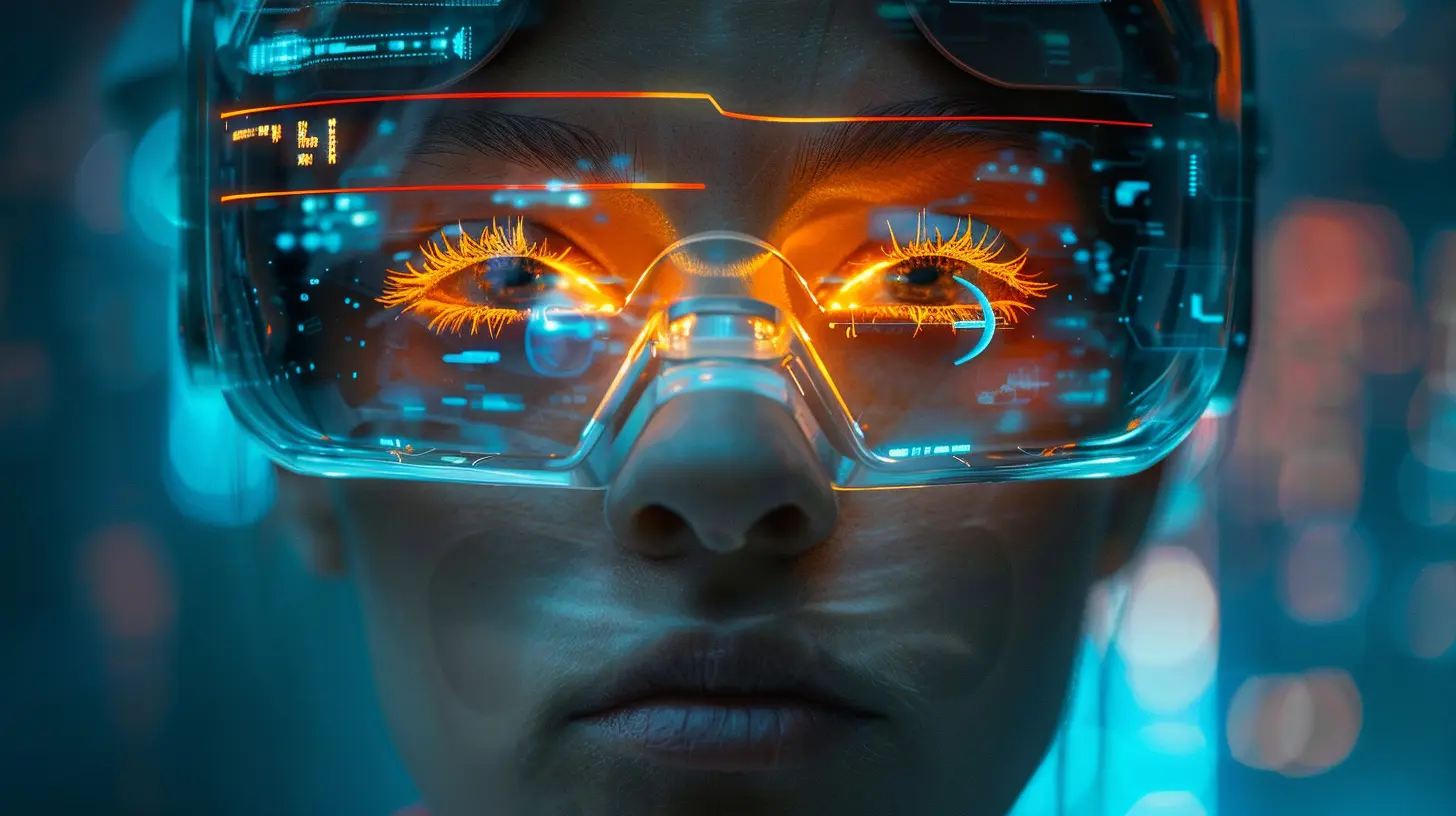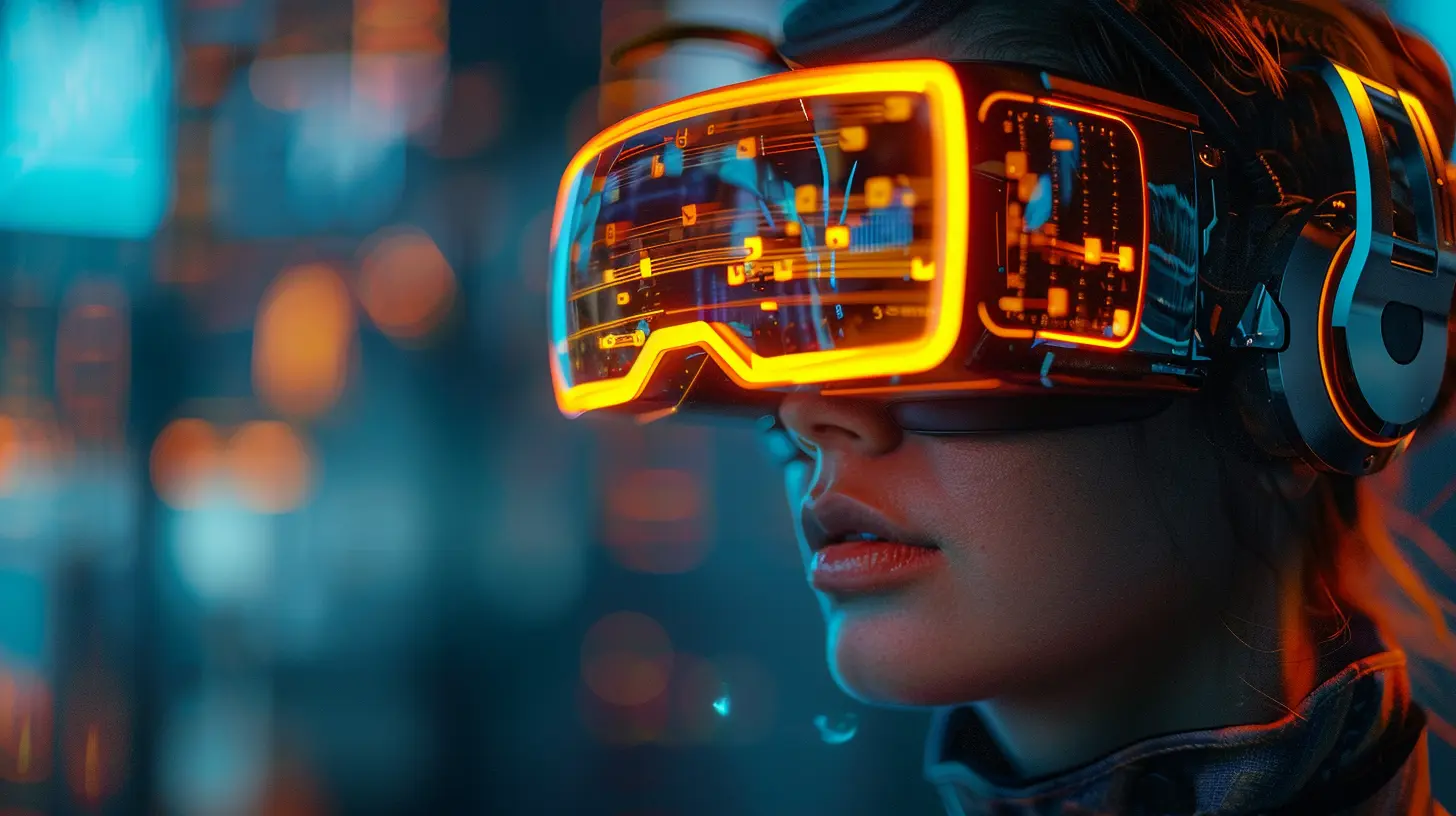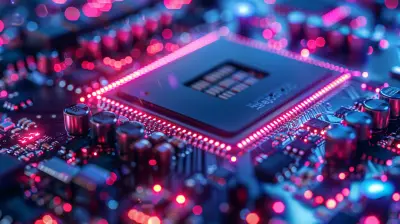G and the Future of Wearable Technology
24 May 2025
The future is here! Wearable technology is evolving faster than ever, and 5G is at the heart of this transformation. From smartwatches and fitness trackers to augmented reality (AR) glasses and even smart clothing, the impact of 5G on wearables is nothing short of revolutionary. But how exactly does 5G supercharge wearables? And what can we expect in the coming years?
Let’s dive into the exciting world of 5G-powered wearable tech.

How 5G Enhances Wearable Technology
Wearables depend on fast, stable internet connections to function seamlessly. While 4G has done a decent job, 5G takes things to an entirely new level. Here’s how:1. Faster Data Speeds
Imagine streaming 4K videos on your smartwatch without buffering or lag. With 5G, blistering speeds ensure wearables process data almost instantly—whether you're making video calls on smart glasses or getting real-time health reports.2. Ultra-Low Latency
Latency is the delay between sending and receiving data. With 4G, latency sits around 50 milliseconds, while 5G slashes it to as low as 1 millisecond. That means wearables will react in real time, making actions like controlling smart home devices or gaming on AR glasses smoother than ever.3. Better Connectivity
Ever noticed how your smartwatch struggles to stay connected in crowded places? 5G fixes this by allowing more devices to connect simultaneously without interference. Whether you're in a packed stadium or a busy airport, your wearables will stay connected without a hitch.4. Enhanced Battery Efficiency
Counterintuitively, 5G can improve battery life. Since it transmits data faster and more efficiently, wearables won’t need to work as hard, leading to extended battery performance.5. More Cloud Computing Power
5G allows wearable devices to offload complex tasks to the cloud instead of processing them locally. That means sleeker designs (since they won’t need massive processors) and more advanced features powered by artificial intelligence (AI).
The Future of Wearable Technology with 5G
Now that we know how 5G enhances wearables, let’s look at what the future holds.1. Augmented Reality (AR) and Mixed Reality (MR) Wearables
Remember Google Glass? It was ahead of its time. But now, with 5G, AR glasses are making a serious comeback. These smart glasses will overlay digital information onto the real world in real-time. Imagine walking down a street and instantly getting navigation prompts, restaurant reviews, or even real-time translation of foreign texts—all without pulling out your phone.2. Smart Clothing and Textiles
5G-enabled smart fabrics are set to revolutionize industries from healthcare to sports. Shirts embedded with biosensors could monitor heart rates, hydration levels, and even detect early signs of medical conditions. Athletes could rely on smart sportswear to analyze movements and improve performance without bulky equipment.3. Real-Time Health Monitoring
Wearables are already capable of tracking basic health stats, but 5G will elevate this to a whole new level. Devices will be able to send real-time ECG reports to doctors, detect irregular heart rhythms instantly, and even predict potential health risks before they become serious.4. Immersive Gaming & Entertainment
Gaming is about to get a major upgrade. With 5G-powered smart glasses, you'll be able to experience AR games that blend digital elements with the real world seamlessly. Picture battling virtual creatures in your living room or playing multiplayer AR games without any lag.5. Seamless Smart Home Integration
Imagine controlling your entire smart home with just a gesture or voice command via a wearable device. 5G-powered wearables will act as centralized hubs, allowing you to adjust your thermostat, turn on lights, or unlock doors effortlessly.
5G and the Healthcare Revolution
Healthcare is set to be one of the biggest beneficiaries of 5G-powered wearable tech. Here’s how:1. Remote Surgeries and Telemedicine
Doctors will be able to perform surgeries remotely using robotic arms controlled by wearables. And with ultra-low latency, virtual consultations will become as effective as in-person visits.2. Continuous Glucose Monitoring for Diabetics
Diabetics will no longer need to prick their fingers multiple times a day. 5G-connected glucose monitors will provide continuous, real-time blood sugar readings and send alerts if levels become unsafe.3. Wearable ECG and Blood Pressure Monitoring
Instead of wearing bulky monitoring devices, patients will use lightweight wearables that track heart health and blood pressure continuously. The data can be instantly shared with doctors, ensuring timely medical interventions.
Challenges and Concerns
While 5G-powered wearables promise a bright future, there are still challenges to address.1. Privacy & Data Security
With wearables continuously collecting and transmitting sensitive health and location data, security risks are a real concern. Strong encryption and better data protection laws will be necessary.2. Battery Limitations
Although 5G improves efficiency, power-hungry applications like AR and real-time health monitoring could still drain batteries quickly. Advancements in battery technology will play a crucial role in sustaining these innovations.3. Network Coverage
5G is still being rolled out worldwide, and not all regions have access to the infrastructure yet. Until full coverage is achieved, users in rural areas may not fully benefit from 5G-enabled wearables.Final Thoughts
5G is set to redefine the wearable tech landscape, transforming everything from smartwatches to futuristic smart clothing. As speeds get faster, connections become more reliable, and AI integrates more seamlessly, our everyday accessories will evolve into essential lifelines for health, communication, and entertainment.The future of wearables is bright, and 5G is the fuel propelling it forward. Whether you’re a fitness enthusiast tracking your performance, a gamer venturing into AR worlds, or someone who simply wants better connectivity, get ready—5G is about to change everything.
all images in this post were generated using AI tools
Category:
5g TechnologyAuthor:

Adeline Taylor
Discussion
rate this article
3 comments
Kian Potter
Exciting times lie ahead with G and wearable technology! As innovation evolves, we’re not just enhancing convenience but transforming lives. Embrace the future, stay curious, and be ready to unlock new possibilities. The best is yet to come!
June 12, 2025 at 3:38 AM

Adeline Taylor
Thank you! Exciting times indeed as we explore the transformative potential of G and wearable technology. Let's embrace the future together!
Sera Montgomery
The article presents a compelling overview of G’s innovative approach to wearable technology, emphasizing seamless integration and user-centric design. Future advancements could revolutionize personal health monitoring, enhancing connectivity and user experience beyond current limitations.
June 2, 2025 at 4:45 AM

Adeline Taylor
Thank you for your insightful comment! I'm glad you found the overview compelling. Exciting advancements lie ahead in wearable technology, and I look forward to seeing how they transform personal health monitoring.
Adam Sanders
G's innovations in wearable tech are redefining the landscape—get ready for a future where convenience meets cutting-edge functionality. Embrace it!
May 26, 2025 at 2:31 AM

Adeline Taylor
Thank you! Exciting times ahead as we explore the convergence of convenience and innovation in wearable tech with G at the forefront.



